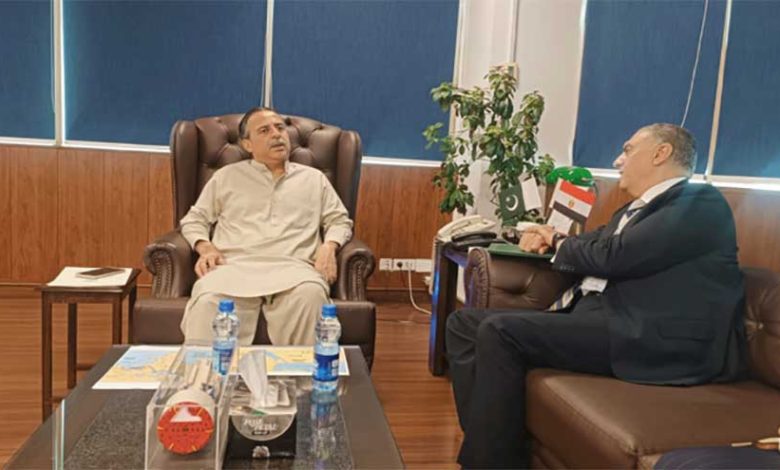Pakistan intends to model its ports after Egypt’s Suez Canal free zone: minister

The Ministry of Maritime Affairs said in a statement following negotiations that Pakistan intends to duplicate Egypt’s Suez Canal free zone framework throughout its major ports in order to increase industrial activity and regional trade on Wednesday.
Egypt has offered to help Pakistan create comparable economic zones around its deep-sea ports by sharing its experience in managing and regulating free zones around the Suez Canal, one of the busiest maritime corridors in the world, according to Minister Muhammad Junaid Anwar Chaudhry and Egypt’s Ambassador Dr. Ihab Mohamed Abdelhamid Hassan in Islamabad.
The action seeks to increase Pakistan’s marine presence along the Arabian Sea by luring investment into shipping, logistics, and port-related sectors.
The success of Egypt’s free zone administration serves as a model for the development of Pakistan’s own blue economy, Chaudhry added. “We are working hard to establish stronger links with Central Asian states and East African countries, and we can further enhance maritime connectivity with Egypt.”
Along the canal is a 460-square-kilometer industrial and logistics corridor known as the Suez Canal Economic Zone (SCZone). It was founded in 2015 and provides tax breaks to foreign investors, expedited customs processes, and specialised infrastructure for shipbuilding, industrial, and port operations. The goal of the concept is to draw international business and industry to one of the busiest shipping lanes in the world, which connects the Mediterranean with the Red Sea.
In order to foster trade, investment, and business collaborations, the minister also suggested creating “Pakistan Houses” in Africa, Central Asia, and Egypt. He claimed that these establishments would strengthen Pakistan’s commercial ties with the surrounding markets.
Egypt will provide technical assistance in creating frameworks for industrial and maritime zones, according to Ambassador Hassan, who praised the suggestions. He commended the competitiveness of Pakistani exports, which include rice, leather goods, spices, and pharmaceuticals, and stated that improved port connectivity might aid in their market expansion, according to a statement from the maritime ministry.
According to the ministry, working groups from both parties will now create feasibility studies for collaborative industrial partnerships and port-based free zones.
The project is viewed as a component of Pakistan’s larger endeavour to enhance economic diplomacy through the maritime sector and diversify its trading ties.